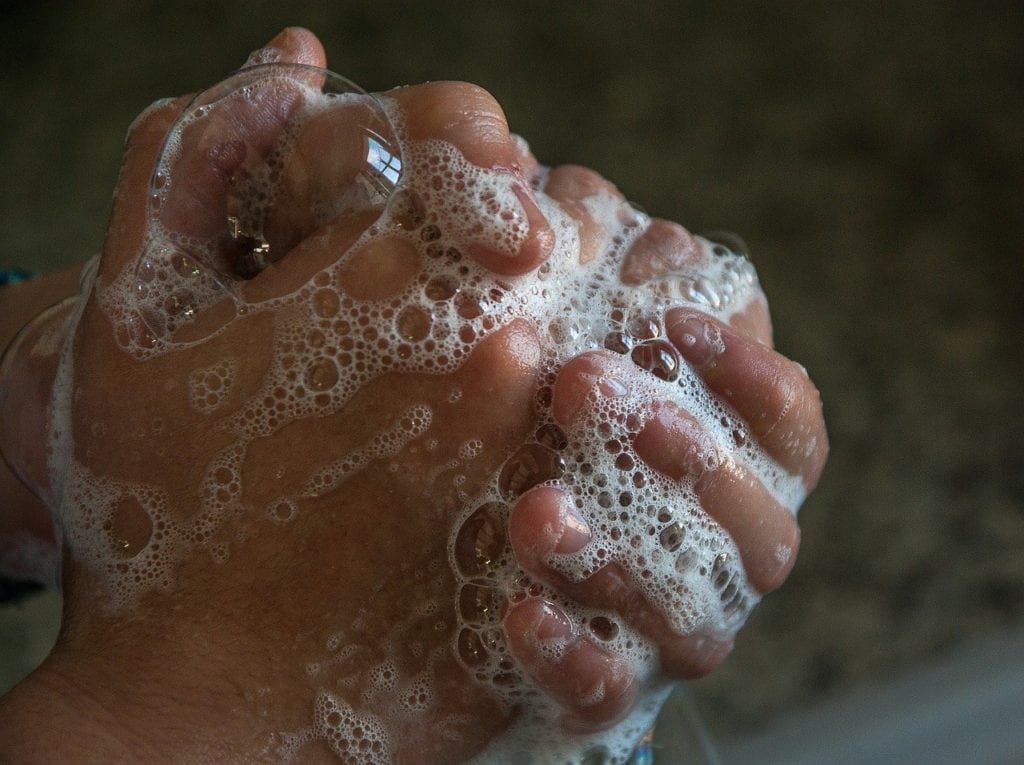As reported in Creaky Joints and Healing Hugs Haven; the media has been overtaken by coronavirus on the move. Rare disease patients need to know what that means and what we can do. Luckily, Coronavirus (COVID19) is not incredibly lethal virus, China’s CDC reported 2.3% of cases resulted in death. For those who do get it, it often looks like a mild cold for a few days. However, it is quickly spreading it’s contagion through the world, and presents a different risk for different demographic groups. This means while children are virtually un-effected, the risk increases for the elderly or those with underlying medical conditions who tend to have more severe symptoms and greater risk. While everyone should be focusing on washing their hands, not touching their face or more contaminated objects in public, staying away from sick people; for patients with many of the health conditions we write about, the CDC has released additional recommendations.
Recommendations for Patients with Underlying Conditions
- Know the coronavirus symptoms:
- Fever
- Cough
- Tiredness
- Shortness of breath
- Aches
- Vomiting
- Diarrhea
- Symptoms similar to pneumonia
However, don’t panic if you experience these symptoms. After all, they are similar symptoms to a common cold which for now, is much more likely the case. Get in touch with a doctor and find out if you had any known paths of exposure priorly.
- Stay Healthy: The first step to avoiding illness is simply keeping up with the basics of health that help us avoid contracting any disease. This includes:
- Maintain a healthy diet
- Exercise
- Get sufficient sleep
- Avoid stress
- Drink plenty of water
- Avoid smoking
- Wash hands thoroughly and often
- Avoid sick people
- Get your flu shot and other vaccines
- Keep up with your medication schedule
- Plan for your medical needs: When there is uncertainty, planning further ahead for your health needs before it becomes a crisis helps avoid stress. Planning in advance means if the time comes that we are in quarantine, there is a medicine shortage, or your doctor is in great demand; you already have your health game plan ready.
- Ask if you can get prescriptions filled for 90 days now, an option under many insurers
- Make sure you are up to date on doctors appointments
- Ask if you can get online prescriptions and delivery of medications to avoid public spaces
- If you worry about respiratory issues, ask if you can prescribe you treatment in anticipation
- Ask your doctor how the coronavirus could interact with your rare disease, and if there’s anything specialized for your disease that you should be aware, if you should avoid certain medications
- If there are special needs for your treatment are you to get the virus, ask that they outline and highlight them in your medical record, and ask that they give you a copy as well to give doctors and understand yourself.
- Be prepared for a bigger outbreak: As of now, the disease is not commonplace like a cold or the flu, the patients discovered to be sick are quarantined and it is somewhat controlled. However, keeping an eye on the situation allows you to prepare yourself if the wind does pick up. The CDC recommends:
- Stock up on water and food
- Figure out what you can do to avoid dense public spaces. Can you work from home? Speak to doctors online? Avoid large gatherings like conferences or sporting events? Can you postpone a trip?
- Set up a support network if anything does happen
- If you get sick, have someone else deliver your medications to you
- Avoid travel and confined spaces like cruise ships
- Monitor your health status, for example if you have diabetes, monitor your blood sugar closely.
- If you take an immune supressing medicine, talk to your doctor about your treatment options. While changing medication regimes are always decided in communication with doctors, they could potentially lower doses of immune suppressing drugs while a patient is at risk or has an infection.
- Stock up on over the counter medicines and painkillers.
A Reminder to The Healthy…
While the coronavirus is not incredibly lethal, it is important to be vigilant nevertheless. While for many people, it doesn’t present as much of a risk, they can be vectors passing it on to those who’s bodies are more susceptible. It helps to be prepared, keep the house stocked, have a plan, and pass some time at home reading that book you’ve been too busy to finish.






